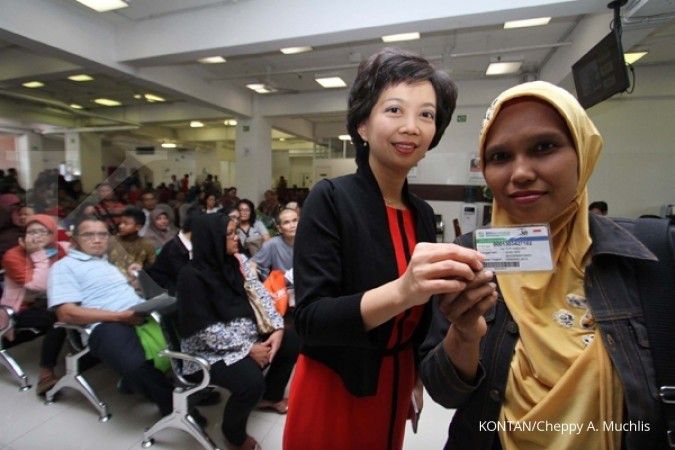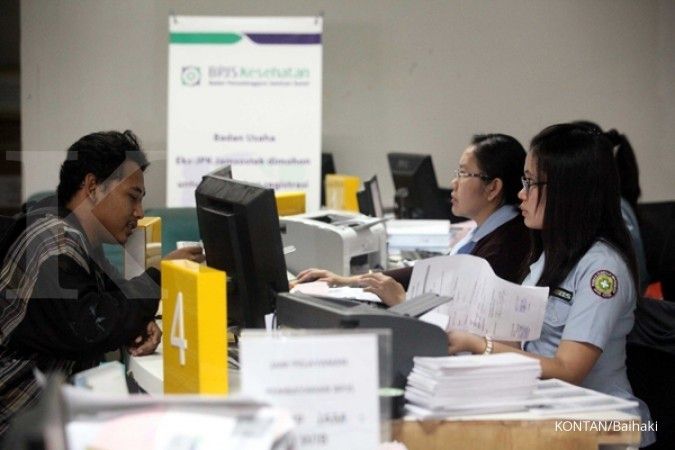JAKARTA. Dessy Rosalina, 29, used to receive reimbursements from her company for her health care, but now she can only hope that her benefits will not be downgraded after her company enrolled her in the national health insurance (JKN) program starting in January next year.
Her experience with the Healthcare and Social Security Agency (BPJS Kesehatan), which provides JKN services, had been unpleasant.
It took her days to enroll her mother and she was left unattended to for three hours by a partnering private hospital only to be transferred to a public hospital for better services.
Dessy’s experience is shared by many other employees — especially those of mid-sized companies — who are now taking a wait-and-see attitude to their companies’ policies on health care.
Employers will need to either resort to the low quality healthcare standard of BPJS Kesehatan and see their employees add their own private insurance, or top up benefits not covered by the public provider — consequently adding to costs.
“I will wait and see the BPJS plan that my office will implement. I am hoping for a coordination of a benefit system that cooperates with private [healthcare providers]. If my office only takes a pure BPJS service, it won’t be as convenient as using private services,” said Dessy, who works in the media industry.
Most employers (state-owned, large, medium and small enterprises), are required by law to enroll their employees on Jan. 1, 2015, at the latest, with a premium rate of 5 percent of employee salaries.
Employers have demanded a delay to this implementation with the government, to give time to BPJS Kesehatan to improve its services and quality.
BPJS Kesehatan spokesman Ikhsan said companies unsatisfied with the agency’s services could take the coordination of benefit (COB) plan, in which firms could top up services not covered by BPJS Kesehatan, either using a direct company benefits system or through more than 30 private insurance firms that BPJS Kesehatan had partnered with.
This is especially helpful for hospitalization, because patients can go to any hospital, even if it does not partner with BPJS Kesehatan, and have their bills paid by BPJS Kesehatan up to a point, with the remainder covered by the additional healthcare provider.
As for outpatients, BPJS Kesehatan members should still go to Puskesmas (community health centers) for minor care and then if required, be referred to a doctor for more serious illnesses.
Outpatient handling has received wide criticism because of long queues and the lack of quality health centers and doctors across the archipelago.
Over 131 million people are entitled to BPJS Kesehatan benefits, with 9,778 Puskesmas, 3,000 clinics and 3,786 individual doctors, according to data from BPJS Kesehatan’s website on Nov. 21.
This means that every Puskesmas is handling 13,397 BPJS members and every doctor is taking care of 34,601 patients.
Ikhsan acknowledged the shortcomings, but said he had done what it takes to improve services, increasing service facilities, human resources and service points.
“The supply side [of healthcare infrastructure] is the government’s responsibility. But yes, our end should be to improve services.”
Companies, however, still feel that the COB plan is adding to their costs, because they will have to top up services not covered by BPJS Kesehatan and maintain the quality of employees’ healthcare benefits, according to Adhi Lukman, chairman of the Indonesian Food and Beverages Association
(GAPMMI).
“If BPJS [Kesehatan] services are good enough, there’s no need for private insurance. Companies could just allocate funds to pay for BPJS [Kesehatan] premiums in exchange for private insurance costs,” said Adhi.
GAPMMI consists of 390 food and beverage companies across Indonesia, such as Indofood, with employees of between 500 to 10,000 each. (Esther Samboh and Linda Yulisman)
/2014/09/24/1596594255p.jpg)











